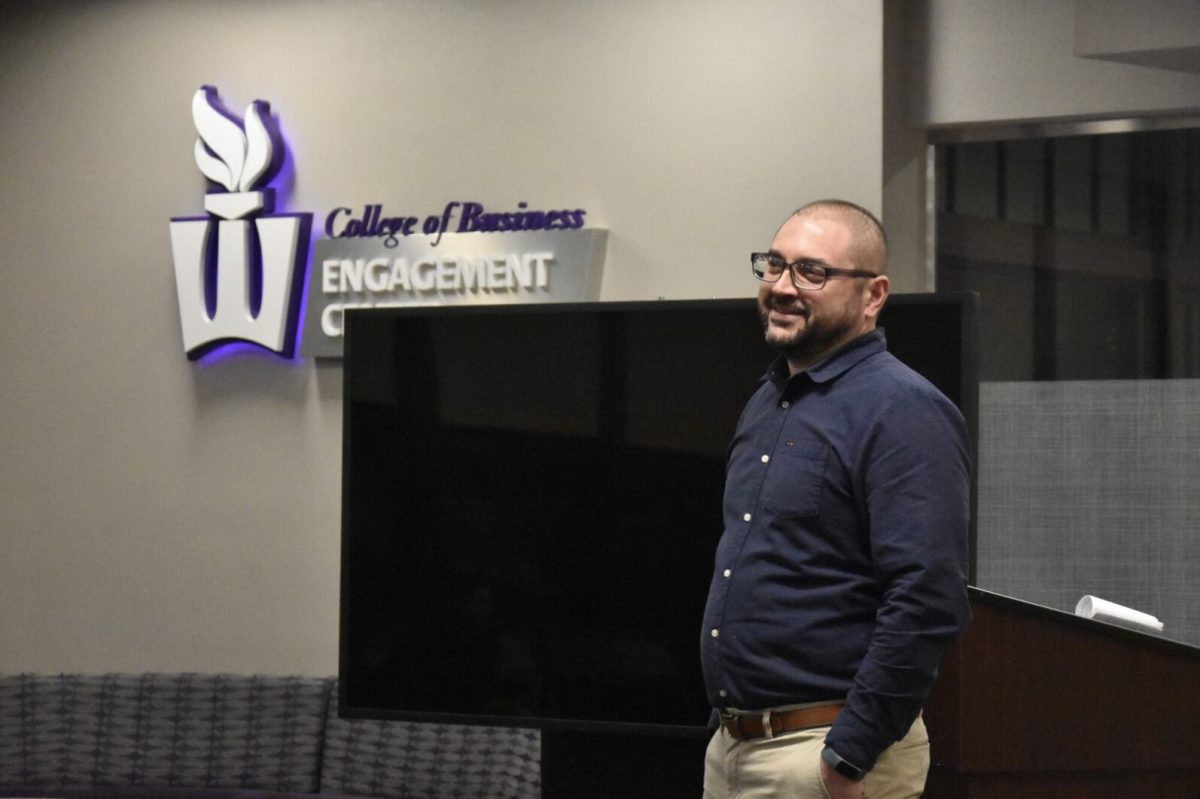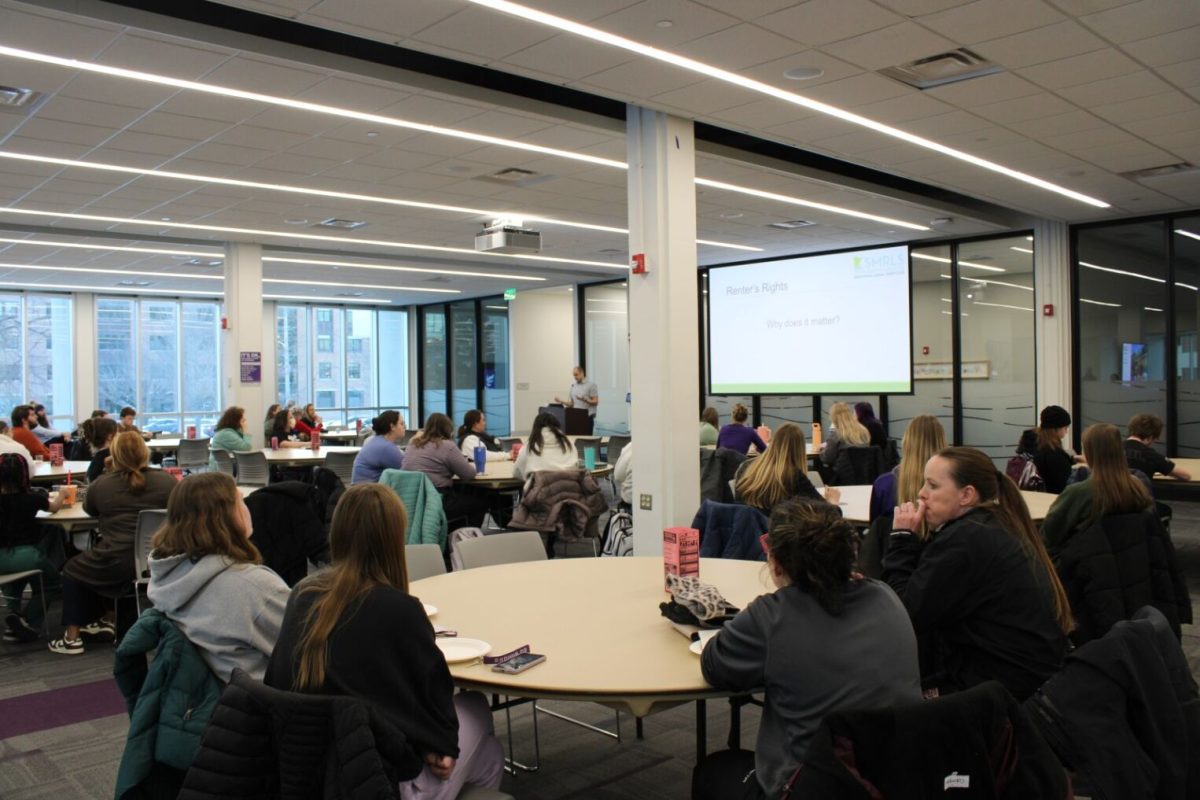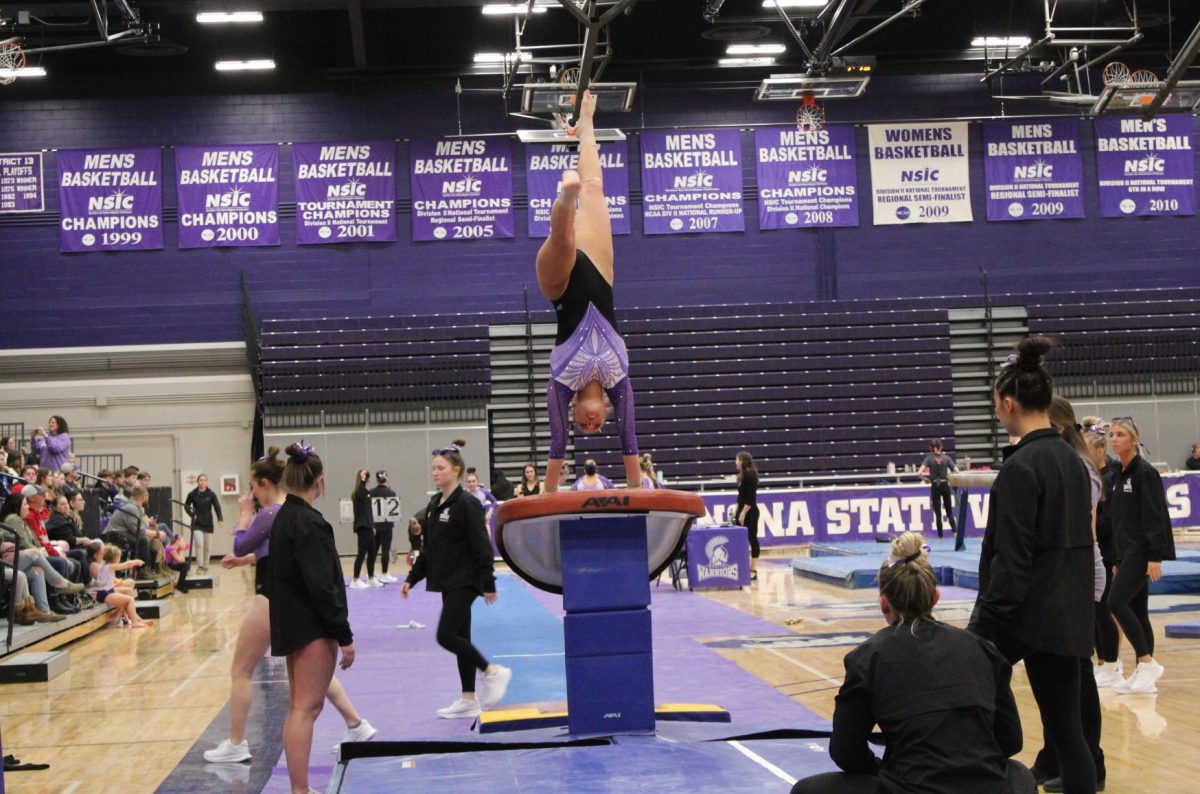Brent Quam/Winonan
Conradin Perner has seen a lot in his life.
In a Lyceum talk Perner gave at Winona State University Thursday, Oct. 25, Perner described for the audience his life story filled with harrowing deeds, exotic lands, danger, accomplishment and kindness.
Perner is the author of many books; his topics include AIDS and the Anyuak tribe of Sudan. He wrote nine of these on a typewriter.
Perner’s lecture included pieces from his latest work in progress, an autobiography, “Why Did You Come if You Go Again?”
Perner, 69, talked about his privileged childhood, growing up in Davos, Switzerland. “I could never have enough books, and in my youth, there was no dancing for me, no drinking. I was born an outsider.”
Speaking of his lifelong tendency towards danger, Perner said, “My father was responsible for my safety in the mountains, my mother near water.”
Perner’s parents’ concerns for him were well founded. The list of ordeals Perner has survived reads like a Hollywood screenplay. Perner fell out of a moving train, nearly drowned in a river, was hit by an avalanche, endured five bouts with malaria, was bitten by both black cobra and black mamba snakes, was caught in the wilderness for days without water and was shot at more times than he can count.
Perner has worked in many capacities during his long life. During college, he studied in Zurich, Switzerland, under Paul de Man, renowned literary theorist and critic, and in France and Sweden. He has worked as an ethnographer, writer, diplomat, humanitarian with the Red Cross, professor of anthropology at the Sarbonne in France, and professor of French poetry at the University of Khartoum, in Sudan. While there, Perner refused to live in the furnished apartments provided him by the university. Instead, he lived in a mud hut among the common people.
Perner is perhaps best known for his role in helping the Lost Boys of Sudan to escape the persecution in their homeland to reach camps in Kenya and Ethiopia.
A slideshow Perner compiled for his presentation showed him with the boys. A picture of Perner and five young boys came on the screen, he pointed to it and said solemnly, “Three of these boys are dead now.”
Perner’s talk was full of tragedy, but also some hope.
“I have seen too much injustice and misery to believe the world is good,” Perner said, “and I share the belief of a tribe I lived with that God is disinterested in creation.”
Throughout his life, Perner has managed to maintain both a sense of modesty about his work and a sense of humor. In virtually every photo Perner included in his slideshow, from himself as young man climbing in the Alps of Europe to a tanned, wizened shepherd of humanity, he is pictured with a smile, smoking a pipe. In one photo, Perner was smoking his pipe with a wooden chair balanced on his head. Grinning, Perner said, “If you would like to know how to do this sometime, I will show you.”
A question-and-answer session followed Perner’s presentation.
A Winona State student from Sudan asked Perner, “With all my knowledge of American democracy, will I be able to make a difference in Sudan, possibly working with the government?”
Perner answered, “You will have to work for your opportunity, but you and others like you will have yours. They need you there.”
Perner said in Sudan and other places he’s visited in Africa following wars, military leaders will be put in positions of power they are unequipped for: “They are brave, but not qualified to lead during peacetime. They know how to fight. They do not know how to lead peacefully.”
Sam Eggers, a Winona State student, said he was glad he attended the lecture.
“If I could have, I would have asked him, ‘what drives you?’” Eggers said. “He distanced himself, but he knew what he was doing.”
Contact Brent at BQuam09@winona.edu







































